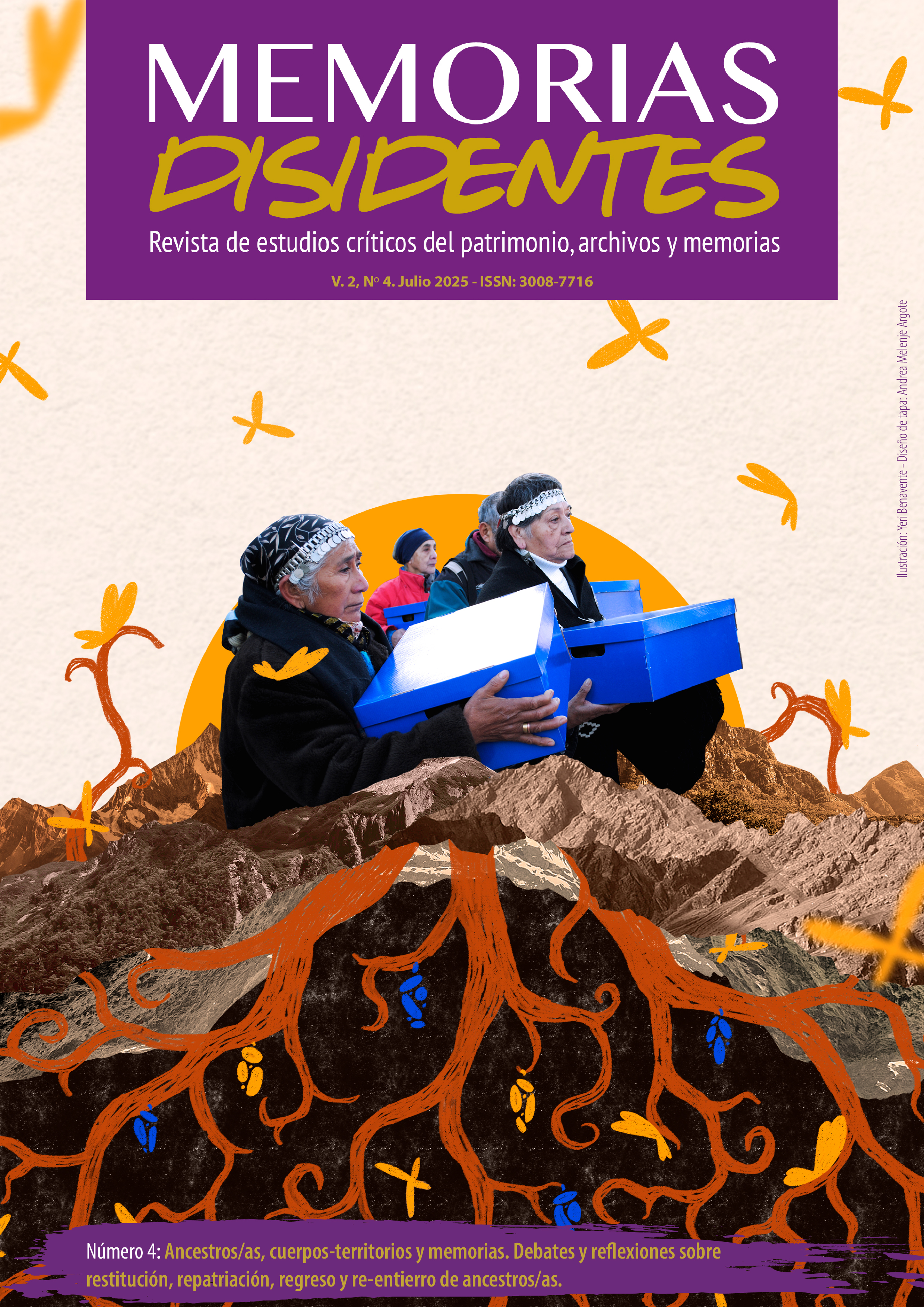The return of the Rankülche ancestors
Main Article Content
Abstract
In this video, María Inés Canuhé, lonko of the Willi Antü community of the Ranquel People, tells the story of her people. After the genocide that resulted from the militarization of the Pampas and Patagonia at the end of the 19th century, the Ranquel People began a long process of recovering their culture and identity, primarily the recovery of the bodies of ancestors taken from their resting places, in some cases by chance and in others taken as trophies to be displayed in museum showcases. The task of recovering a people required redefining rituals based on ancient worldviews; for the Ranquel people, this acquired the unique value of feeling a debt to their ancestors fulfilled by returning them to the natural cycle that should never have been interrupted. Finally, the importance of restitution policies that respect the origin of the bodies and ensure that they are returned in accordance with their own worldview is emphasized.
Article Details

This work is licensed under a Creative Commons Attribution-NonCommercial-ShareAlike 4.0 International License.

-
The authors retain the rights of autxr and assign to the journal the right to first publication of the work, registered under the Creative Commons attribution license, which allows third parties to use what is published as long as they mention the authorship of the work and the first publication in this journal.
-
Authors may make other independent and additional contractual agreements for the non-exclusive distribution of the version of the article published in this journal (for example, including it in an institutional repository) as long as they clearly indicate that the work was first published in this journal.
-
The authors grant any third party the right to share and use the article (for non-commercial purposes), provided that the original authors and the citation of the version published in this journal are identified.

